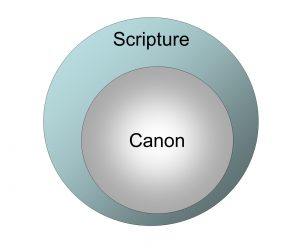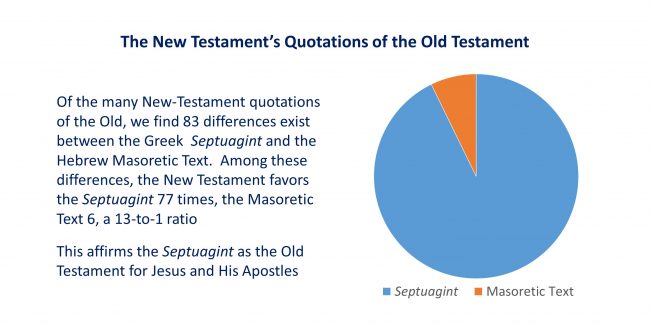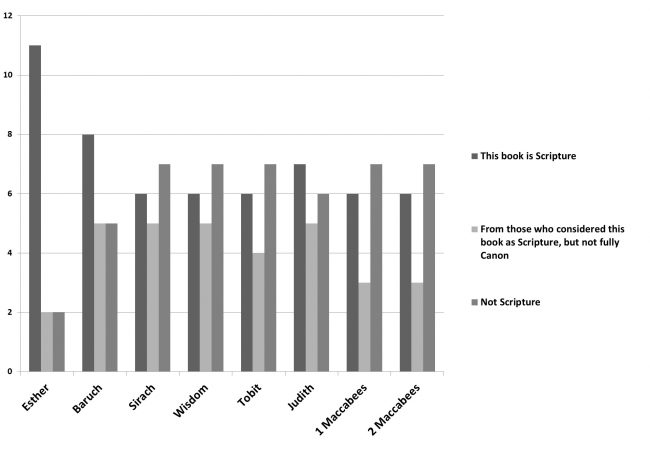 In Jesus’ day, Greek was the “universal” language around the Mediterranean world. Earlier, most Jews lost their ability to read and speak in Hebrew during their captivity in Babylon. Hebrew became the domain of rabbis, who learned it to read the Scriptures. We learn of this loss in Nehemiah.
In Jesus’ day, Greek was the “universal” language around the Mediterranean world. Earlier, most Jews lost their ability to read and speak in Hebrew during their captivity in Babylon. Hebrew became the domain of rabbis, who learned it to read the Scriptures. We learn of this loss in Nehemiah.
Read Nehemiah 8:1, 5-8
The household language of the Jews in Judea became Aramaic. Such was not true for other Jews throughout the Mediterranean basin. Following the conquests of Alexander the Great in the 4th century BC, Greek began to spread and serve as the lingua franca, the “international” language, of much of the Mediterranean region and the Middle East during the following centuries.
No longer understanding Hebrew, with many different home languages, the Jews needed a universal Old Testament. The king of Egypt, Ptolemy II (reigned 285-246 BC), requested 72 scholars (Septuagint means “70”) to translate the Torah from Hebrew into Greek for the Library of Alexandria. Philo of Alexandria (1st century BC) tells us six scholars from each tribe of Israel took part in the translation.
The translation, however, didn’t end with the Torah, but continued until the entire Old Testament was complete. This became the Bible of the Jews and was even used in Judea by its rabbis. For Jesus, His Apostles, and the early Church, the Greek-language translation, the Septuagint, was their Bible.
The New Testament itself confirms the Septuagint as the accepted Old Testament, for almost all of its Old-Testament quotations come from the Septuagint, not the Hebrew.
If you want to become obsessed about this after today’s lesson, you can compare the differences by referencing the footnote below.[1]
Which Old Testament?
A myth floating around Christianity is the Christian Church received the Old Testament intact (the current Protestant Old Testament) as the Scriptures of the Jews. Though they did use the Septuagint, not all Jews considered every book within it as Scripture (we’ll get to the books in the Septuagint later). We see this division reveal itself in a conversation between Jesus and the Sadducees in Matthew 22. They were a group within Judaism, who didn’t believe in the resurrection of the body.
Read Matthew 22:23-28
- How did the Sadducees mock the idea of the resurrection?
Old-Covenant Law commanded a husband’s brother to marry the widow of his dead brother and raise her children (Genesis 38:8, Deuteronomy 25:5-6). That was the “Social Security” of ancient Israel, which also ensured the proper transfer of property.
So, if seven brothers married the same woman, each dying without any offspring, then whose wife would she be after the resurrection, since each man was her husband? The Sadducees’ scenario bordered on the absurd. Seven brothers marrying the same woman is so far-fetched that Jesus could have legitimately responded, “Show me such a woman and I will answer you.”
But the Apocrypha book of Tobit has such a scenario (Tobit 3:8, 15), which was part of the Septuagint!
Tobit 3:7-8, 15:
Raguel’s daughter, Sarah, was insulted by her father’s maids. For she was married to seven husbands, but the evil demon Asmodeus had slain each of them before he could be with her as his wife…. [Sarah said,] “Seven husbands of mine have already died. Why should I live?”
Read Matthew 22:29
- What did Jesus mean when He said, “You don’t know the Scriptures”?
- What did Jesus mean when He said, “You don’t know the power of God”?
Through His answer, Jesus recognized Tobit as Scripture—and He said as much. However, to meet the Sadducees where they were in their view of Scripture, Jesus chose only to use the Torah. The Sadducees held that no afterlife existed, which ruled out a later resurrection of the body.
Read Matthew 22:31-32
- By using the present tense “is,” how did Jesus affirm that Abraham, Isaac, and Jacob were alive?
- If still alive, what did that do to the Sadducee’s argument that the resurrection of the body could not be real?
In 1st century Judaism, many different groups existed (like Christianity today), each claiming to be the true expression of Judaism. These groups held different opinions about which books were Scripture. Starting with the “Protestant Old Testament” of today as a reference:
- The Sadducees (and Samaritans) only accepted the first five books of the Bible (the Torah, the Pentateuch) and rejected the rest.
- The Essenes, the “monks” of the 1st century, didn’t recognize Esther but recognized Tobit, Sirach (in the Septuagint), and Enoch (not in the Septuagint) as Scripture.
- The Pharisees separated into two distinct groups, descended from two schools of thought: Shammai and Hillel.
- The school of Shammai believed all the books in the Septuagint were Scripture, except Ecclesiastes, Song of Songs, and Esther.
- The school of Hillel affirmed all the books within the Septuagint to be Scripture. The Apostle Paul was a student of Gamaliel, the grandson of Hillel. So his default position would be to accept all the book of the Septuagint as Scripture.
So, to understand what books make up the Old Testament, we cannot look to the Jews, for they couldn’t agree themselves! For Christians, only one first-century Jewish group was the real expression of Judaism properly understood—the Christians. Jesus Christ and His Apostles set the norm for Christian belief and practice (1 Corinthians 11:1-2, Philippians 3:17), not Jews who rejected Jesus as the Messiah.
The Confusion in the Church on the Old Testament Scriptures
In 313 AD, Emperor Constantine issued the Edict of Milan, making Christianity a legal religion in the Roman Empire. For the first time, the Church could now meet in council to discuss issues and resolve problems.
The Church first met to make sure her language describing Jesus was clear. For if the Church proclaimed a false Jesus, nothing else mattered. The result was the Nicene Creed, a response to Arianism, which taught that Jesus did not always exist (even apart from His incarnation), but in time, not eternity, was born of the Father and thus a lesser being. In 325 AD the Church wrote the Nicene Creed, with additions for the Holy Spirit and Church in 381 AD.
Only after that did the Church consider the books of Scripture to be important enough to specify. The Church had to resolve what was Old-Testament Scripture because three traditions had developed.
- Athanasius (295-373), the Bishop of Alexandria, held all the books of the Septuagint were Scripture. Some books, however, were anagignoskomena, books worthy of being read, studied, and preached on in the Church. However, he held that doctrine was not to be created from such books. These anagignoskomena books are the same books we call “apocrypha.”
- Cyril (315-386), the Bishop of Jerusalem, considered all the books of the Septuagint to be Scripture. However, among the books, he put the “original” Greek-language books into a category called deuterocanon, a second-tier level of canon. He considered them canonical books (used to make doctrine), but of secondary rank. This classification changes, in practice but not wording, later within the Roman Catholic Church.

- Jerome (347-420), Translator: He was commissioned to make a new translation of the Bible into Latin, which became the Vulgate. Jerome was the first Church father who wanted to remove the “original” Greek-language books of the Old Testament, which he called “apocrypha.”
If we delve into earlier lists, which individuals within the Church put together, we find the same debate with others (not only Athanasius, Cyril, and Jerome) on what to do with these books. Among the eight books that were contested, between 160 and 397 AD, we find[2]:
The Council of Carthage, 397 AD
The Church met at Carthage in 397 AD (today in Tunisia), declaring that Athanasius’ and Cyril’s views were acceptable, but not Jerome’s. Irony: Despite Luther’s personal opinions, the Lutheran Church adopted Jerome’s use of language (apocrypha) but moved to adopt the Eastern Church’s anagignoskomena view. We adopted the term “apocrypha” because, though Luther personally wanted to remove those books from the Bible, he did not, recognizing he wasn’t authorized to do so.
Here is the Church’s first proclamation of what is Scripture:
… nothing except the canonical Scriptures should be read in the church under the name of the divine Scriptures. But the canonical Scriptures are: Genesis, Exodus, Leviticus, Numbers, Deuteronomy, Joshua, Judges, Ruth, four books of Kings [1-2 Samuel, 1-2 Kings], Paralipomena [1-2 Chronicles], Job, the Psalms, the five books of Solomon [Proverbs, Song of Songs, Ecclesiastes, Wisdom, and Sirach], the twelve Prophets, Isaiah, Jeremiah, Daniel, Ezekiel, Tobias [Tobit], Judith, Esther, two books of Ezra [Ezra, Nehemiah], two books of Maccabees.
Moreover, of the New Testament [lists the 27 books]. Thus [it is declared] that the Church beyond the sea may be consulted regarding the confirmation of that canon; also that it be permitted to read the sufferings of the martyrs when their anniversary days are celebrated. [Council of Carthage (III), Canon 36 (47), D92.]
What we find is the Church affirming all the books of the Septuagint as Scripture. Today, this would be the books in the Roman-Catholic Bible, or the Protestant Bible with the Apocrypha. Though the Council of Carthage used “canonical,” the church continued to use “deuterocanon” and “anagignoskomena” to describe what we call the Apocrypha, denoting a secondary status of some kind.
Link to the next Lesson in this series.
[1] Enoch was not, because God translated him, Gen 5:24 in Heb 11:5. To your seed Gn 12:7 in Ga 3:16. Jacob ::: worshipped, leaning on the top of his staff, Gen 47:31 in Heb 11:21. Would you kill me, as you killed the Egyptian yesterday?, Ex 2:14 in Ac 7:27-28. My name might be published abroad in all the earth, Ex 9:16 in Ro 9:17. A royal priesthood, Ex 19:6 in 1 Pe 2:9. The Lord knows those who are his, Nu 16:5 in 2 Tm 2:19. You will worship the Lord your God, Dt 6:13 in Mt 4:10 and Lk 4:8. Put away the wicked man from among yourselves, Dt 17:7 in 1 Cor 5:13. Cursed is everyone who hangs on a tree, Dt 21:23 in Ga 3:13. Cursed is everyone who does not continue, Dt 27:26 in Ga 3:10. Let all the angels of God worship him, Dt 32:43 in Heb 1:6. Why did the Gentiles rage?, Ps 2:1-2 in Ac 4:25-26. Their throat is an open sepulchre, Ps 5:9 in Ro 3:13. Out of the mouth of infants, Ps 8:2 in Mt 21:16. What is man, that you are mindful of him?, Ps 8:4-6 in Heb 2:6-8. Whose mouth is full of cursing and bitterness, Ps 10:7 in Ro 3:14. They have together become unprofitable, Ps 14:1-3 in Ro 3:10-12. You will not leave my soul unto Hades, Ps 16:8-11 in Ac 2:25-28. Their sound went out into all the earth, Ps 19:4 in Ro 10:18. I will declare your name to my brothers, Ps 22:22 in Heb 2:12. Sacrifice and offering you would not, Ps 40:6-8 in Heb 10:5-6. That you might be justified in your words, Ps 51:4 in Ro 3:4. They have together become unprofitable, Ps 53:1-3 in Ro 3:10-12. Let their table be made a snare, Ps 69:22-23 in Ro 11:9-10. Heb gave them bread out of heaven to eat, Ps 78:24 in Jn 6:31. Today, if you will hear his voice, Ps 95:7-8 in Heb 3:15 and Heb 4:7. Today, if you will hear his voice, Ps 95:7-11 in Heb 3:7-11. And they all grow old as does a garment, Ps 102:25-27 in Heb 1:10-12. I believed, and therefore did I speak, Ps 116:10 in 2 Cor 4:13. The Lord is my helper, Ps 118:6 in Heb 13:6. The poison of snakes in under their lips, Ps 140:3 in Ro 3:13. For whom the Lord loves Heb disciplines, Pr 3:11-12 in Heb 12:5-6. God resists the proud, but gives grace to the humble, Pr 3:34 in James 4:6 and 1 Pe 5:5. And if the righteous is barely saved, where will the ungodly and sinner appear, Pr 11:31 in 1 Pe 4:18. If your enemy hungers, feed him, Pr 25:21-22 in Ro 12:20. Except the Lord of Hosts had left us a seed, we should have been as Sodom, Is 1:9 in Ro 9:29. By hearing you will hear, and in no wise understand, Is 6:9-10 in Mt 13:14-15 and Mk 4:12. By hearing you will hear, and in no wise understand, Is 6:9-10 in Ac 28:26-27. Lest they should see with their eyes ::: and I should heal them, Is 6:9-10 in John 12:40. Behold, the virgin will be with child, Is 7:14 in Mt: 1:23. I will put my trust in him, Is 8:17 in Heb 2:13. It is the remnant who will be saved, Is 10:22-23 in Ro 9:27-28. On him will the Gentiles hope, Is 11:10 in Ro 15:12. When I will take away their sins, Is 27:9 in Ro 11:27. Heb who believes on him will not be put to shame, Is 28:16 in Ro 9:33, 10:11, and 1 Pe 2:6. Teaching as their doctrines the precepts of men, Is 29:13 in Mt 15:8-9 and Mk 7:6-7. I will destroy the wisdom of the wise, Is 29:14 in 1 Cor 1:19. All flesh will see the salvation of God, Is 40:3-5 in Lk 3:4-6. The voice of one crying in the wilderness, Is 40:3 in Mt 3:3, Mk 1:3, and Jn 1:23. All flesh is as grass, Is 40:6-8 in 1 Pt 1:24-25. Who has known the mind of the Lord?, Is 40:13 in Ro 11:34 and 1 Cor 2:16. And in his name will the Gentiles hope, Is 42:4 in Mt 12:21. A people for God’s own possession, Is 43:21 in 1 Pe 2:9. To me every knee will bow, Is 45:23 in Ro 14:11. At an acceptable time I hearkened unto you, Is 49:8 in 2 Cor 6:2. For the name of God is blasphemed among the Gentiles because of you, Is 52:5 in Ro 2:24. They will see, to whom no news of him came, Is 52:15 in Ro 15:21. Who has believed our report?, Is 53:1 in Jn 12:38 and Ro 10:16. Heb was led as a sheep to the slaughter, Is 53:7-8 in Ac 8:32-33. Neither was guile found in his mouth, Is 53:9 in 1 Pt 2:22. Rejoice you barren who does not bear, Is 54:1 in Ga 4:27, The holy and sure blessings of David, Is 55:3 in Ac 13:34. To set at liberty those who are bruised, Is 58:6 in Luke 4:18. Heb will turn away ungodliness from Jacob, Is 59:20-21 in Ro 11:26-27. The Spirit of the Lord is upon me, Is 61:1-2 in Lk 4:18-19. I was found by those who did not seek me, Is 65:1 in Ro 10:20. A disobedient and gainsaying people, Is 65:2 in Ro 10:21. Behold, the days come, Jer 31:31-34 in Heb 8:8-12. I will put my laws on their heart, Jer 31:33-34 in Heb 10:16-17. I will call them my people who were not my people, Ho 2:23 in Ro 9:25. I desire mercy, and not sacrifice, Ho 6:6 in Mt 9:13 and 12:7. O death, where is your sting?, Ho 13:14 in 1 Cor 15:55. I will pour forth of my Spirit upon all flesh, Jl 2:28-32 in Ac 2:17-21. You took up the tabernacle of Moloch, Am 5:25-27 in Ac 7:42-43. I will build again the tabernacle of David, which is fallen, Am 9:11-12 in Ac 15:16-17. For I work a work in your days, which you will in no wise believe, Hab 1:5 in Ac 13:41. But my righteous one shall live by faith, Hab 2:3-4 in Heb 10:37-38.
[2] Melito, 160 AD; Origen, 225 AD; Cyril of Jerusalem, 348 AD; Hilary of Potiers, 360 AD; Cheltanham List, 360 AD; Council of Laodecia, 363 AD; Athanasius of Alexandria, 367 AD; Amphilocius of Iconium, 380 AD; Apostolic Canons, 380 AD; Gregory of Nanzianzus, 380 AD; Epiphanius of Salamis, 385 AD; Jerome, 390; Augustine, 397.



